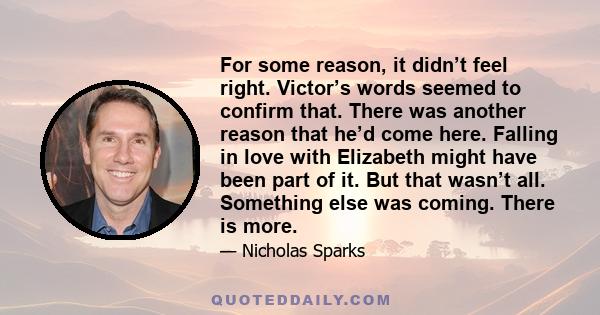Might Quotes - Page 125
Nicholas Sparks (2009). “The Last Song”, p.149, Hachette UK
Neil Gaiman (2013). “Coraline”, p.128, A&C Black
Neil Gaiman (2005). “Anansi Boys”
Song: Surviving The Life, Album: Beautiful Noise, 1976
Neal Shusterman (2012). “Downsiders”, p.11, Simon and Schuster
Neal Shusterman (2012). “Unwholly”, p.153, Simon and Schuster
Nathaniel Hawthorne (2015). “The Complete Works of Nathaniel Hawthorne: Novels, Short Stories, Poems, Essays, Letters and Memoirs (Illustrated): The Scarlet Letter with its Adaptation, The House of the Seven Gables, The Blithedale Romance, Tanglewood Tales, Birthmark, Ghost of Doctor Harris… (Including Biographies and Literary Criticism)”, p.457, e-artnow
Nathaniel Hawthorne (2015). “The Birthmark (Unabridged): A Dark Romantic Story on Obsession with Human Perfection From the Renowned American Author of “The Scarlet Letter”, “The House with the Seven Gables” & “Twice-Told Tales” (Including Biography)”, p.76, e-artnow
Nathaniel Hawthorne (2015). “The Marble Faun”, p.342, Booklassic
Nathaniel Hawthorne, Joel Myerson (2002). “Selected Letters of Nathaniel Hawthorne”, p.103, Ohio State University Press
Nathaniel Hawthorne (1850). “The Scarlet Letter”, p.17
Nathaniel Branden (1998). “Nathaniel Brandens Self-Esteem Every Day: Reflections on Self-Esteem and Spirituality”, p.393, Simon and Schuster







